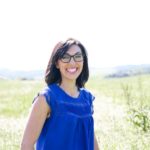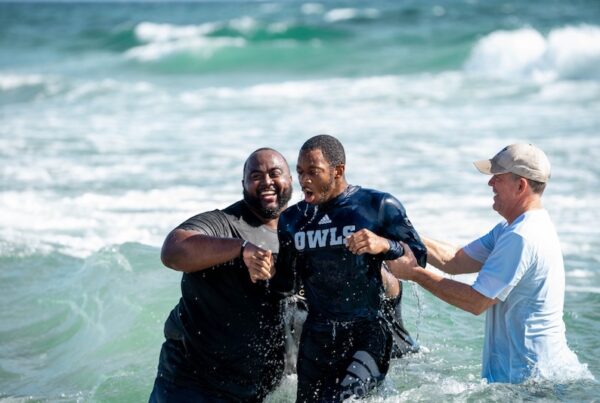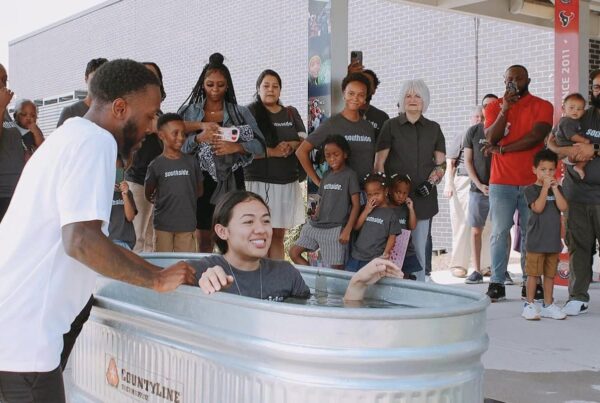Two years ago, Acts 29 US West sponsored a group of pastors and their wives through a revolutionary cohort called Soul Care. My husband and I were honored to be a part of this group and what we gleaned from our time in that cohort radically changed how we do ministry.
Prior to this training, I often found it difficult to be patient with people in their transformation—I know, I know, not the best attribute of someone in formalized ministry to have. But, maybe you can relate. Often, countless hours spent listening and counseling people on our couch seemed fruitless. I often wanted to throw in the towel because people “didn’t get it.” What I came to see is that knowing yourself and your story leads to empathy and the ability to be present and patient with other’s transformation.
One activity we were asked to do in this cohort is called Life Mapping. You list out any and all experiences you remember from the formative years of your life, the emotions attached to those experiences, and the interpretations you made based on what you saw and felt. You can read more about this exercise in the book The Relational Soul, but essentially what comes out of the exercise is a lay of the land of what you lived—the good, the bad, the ugly.
This forced me to go back and comb through areas of my life that I had glossed over or moved on from without giving proper attention to, often times out of necessity, especially as a young child. I know I’m not alone in that. Some of us had to grow up too fast for the sake of survival because our home life wasn’t what it should have been. Sometimes something happens that triggers a memory from years ago that you thought you had moved on from. I learned that what someone has lived matters. It may not completely define them but it absolutely shapes them. This is precisely why now I always start by learning someone’s story in any counseling or hospitality situation. When you are sitting with someone, you are encountering them in both their nature and nurture; where they are now is based on what they lived and experienced.
One result of carefully looking through, processing, and owning my own story was a broadening of my categories for pain and suffering in this life. For a long time, I primarily listened to people through a lens of “sin hunting.” Now, I didn’t always recognize it or call it that. But, because of my belief that confession is sweet and sins are forgiven through the blood of Jesus, I usually felt like everyone I talked to should simply reveal all the sin they could. However, though sin can be one aspect of what is happening in a person, not everything is sin or idolatry.
One example of this is found in John 9:1-3. Here we see Jesus’ disciples asking him if one man’s blindness is the result of his sin or the sin of his parents to which Jesus responds, “It was not that this man sinned, or his parents, but that the works of God might be displayed in him” (ESV). That tells us that there is much more at play than just sin and idolatry in our broken world.
By having a broader understanding of what is happening in a person, we can have a more realistic view of what we should call them to, and better grasp how to encourage them. There is freedom offered through the Spirit as God, and they need to know that this is transforming them from one degree of glory to another (2 Corinthians 3:18).
I have found four different categories helpful for classifying effects of living in a fallen world: suffering, weakness, damage, and sin.
My husband, Nick, summarized each recently:
- Suffering is one of the effects of living in a sinful, fallen world and can impact people deeply in ways that affect their behavior. A common form of this is those who have suffered at the hands of an abuser (sexually, physically, emotionally). The sin of the perpetrator causes suffering and wounds the victim. Wounding has relational and psychological implications—think of the anxiety, victimization, or depression experienced by someone who has been abused. Wounds need healing, not repentance. They can exhibit in sinful behavior, and that can be repented for, but if the wound beneath the behavior is never addressed, it doesn’t heal. (Again, this is why sharing and hearing one another’s stories is so helpful.)
- Weaknesses are our vulnerabilities and temptations that tend to be part of our wiring. Some people are more tempted to power and anger, others to being emotionally cold or detached, while others will tend toward lust, greed, passivity, fear, etc. Everyone has weaknesses and vulnerabilities; the options are plentiful. Sometimes behavior can be immaturity that results from weakness and not necessarily sin. Paul tells us to bear with one another’s faults (Col 3:13) and could be referring to this. (This is where tools like the Enneagram and practices like spiritual disciplines can be very helpful.)
- Damage can be relational difficulties caused by psychological structures that are underdeveloped or distorted. Think of personality disorders, brain injuries, and other issues happening at a biological level. Damage is to be diagnosed by a psychiatrist or psychologist and can be greatly helped by a long-suffering, merciful, and wise community.
- Sin is what we are all most familiar with—a falling short of God’s standards because we love things other than him (Rom 1-3). Suffering, weakness, and damage don’t excuse sin but they can help explain what else may be going on in the situation. Sin is a state of our desires and our actions and has moral and relational dimensions. Sin can and should be repented of and can be aided by a trusted community. Sometimes we can’t hear or face the reality of our sin from those closest to us and need the help of others to see a situation, ourselves, and God rightly.
Classification like this should be done within our own stories first to make sense of what we have lived so that we can better love, live in community, and bear with those around us. My experience in this Soul Care cohort taught me that our ability to sit, be patient with and care for those around us is dependent upon our own self-awareness and care. The more we are at home with who we are and what we have lived, the more patient we can be with others while watching God work in and through their stories, and the stories of those around us.











